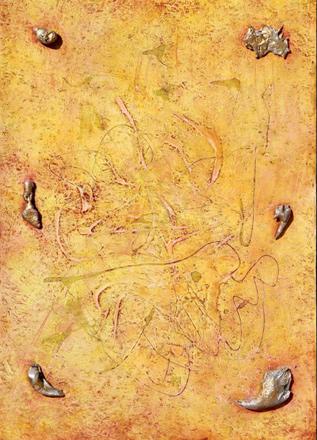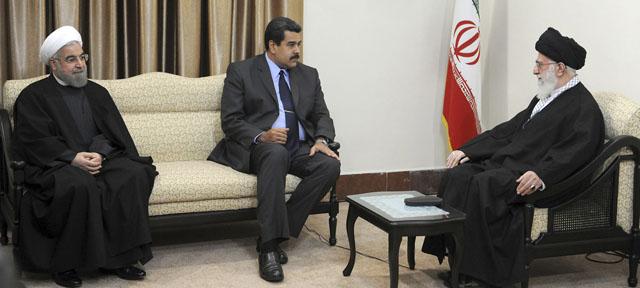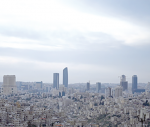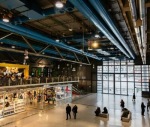You are here
Venezuelan play depicts good, bad side of oil industry
By Suzanna Goussous - May 07,2015 - Last updated at May 07,2015
AMMAN — Although César Rengifo wrote "The Towers and the Wind" to show the curse and blessing brought on by the discovery of oil in Venezuela, the play's themes ring true in the Arab world as well, according to the Venezuelan ambassador.
“Venezuela has been an oil-producing country for more than a century. For most of this period, the revenue of the oil industry was manipulated by a minority only while the rest of the people didn’t benefit from it,” Venezuela’s ambassador to Jordan, Fausto Fernandes Borge, told The Jordan Times.
The play, performed for the first time in Arabic at Amman's Royal Cultural Centre, narrates the evolution of Venezuela in the first half of the 20th century, with the boom of the oil industry and its effect on the people, according to the ambassador.
“Themes in the play can address some of the problems in the Arab world,” Borge said, noting that the embassy translated the play, in addition to other Venezuelan books "to get closer to Jordanians".
Former culture minister Jeryes Samawi said there are similarities in the way oil was controlled and used only by a minority of individuals in Venezuela and the conflicts that have been taking place in the Arab world over the past decade.
“Oil is a main reason that explains why we, as Arabs, are not moving forward; this has resulted in some kind of ‘relapse of civilisation’ that we are witnessing in the region,” Samawi added.
Director Abdelrahman Barakat said "The Towers and the Wind" tells the story of the people transforming into "a bourgeois and lazy community" after the discovery of oil, and portrays the dream of each citizen to have a “decent” life in a peaceful world without any massacres or crimes.
Barakat said the original characters' names were changed into colours in his production, explaining that the decision was taken to generalise each case.
“Characters in the play are black, orange, yellow, grey and white. Each represents a sector of society according to the characteristics of each colour.”
“Orange represents power, yellow is a combination of both the good and the bad, grey is always on the ‘sidelines’ but can be manipulated into doing evil, while black represents ‘evil’ and white represents love, purity and good will,” Barakat added, noting that oil symbolises corruption not only in Venezuela, but the whole world.
Borge said the 1998 revolution led to the distribution of oil wealth among the people to ensure social and economic development in the country.
“Thanks to the distribution of oil, Venezuela has advanced on so many levels. The poverty rate... decreased from 60 per cent to 20 per cent, and more than 2 million students have enrolled in universities since then,” he added.
Related Articles
A Venezuelan plane laden with humanitarian aid to the Palestinian people arrived in Amman Monday evening and will leave Wednesday carrying 100 Palestinian students who will head to Caracas to study medicine.
AMMAN — Simply called “The Amman Period”, Venezuelan artist Fausto Borge’s exhibition at Jordan National Gallery of Fine Arts is the result
Iran's President Hassan Rouhani, flanked by Venezuelan counterpart Nicolas Maduro, vowed Saturday to "neutralise" the threat posed to both countries by plummeting oil prices, in a barely veiled broadside at Saudi Arabia.


















